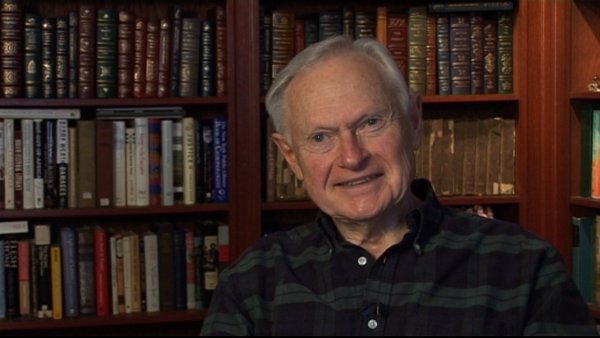NEXT STORY

Working on How We Die
RELATED STORIES

NEXT STORY

Working on How We Die
RELATED STORIES


|
Views | Duration | |
|---|---|---|---|
| 31. The first book - Doctors: The Biography of Medicine | 270 | 03:01 | |
| 32. My way to The New Yorker | 260 | 03:21 | |
| 33. An idea for a book worth writing | 270 | 03:55 | |
| 34. Working on How We Die | 290 | 02:42 | |
| 35. Who will publish How We Die? | 247 | 02:59 | |
| 36. The great success of How We Die | 283 | 05:19 | |
| 37. My method of writing | 286 | 04:04 | |
| 38. The concept of a changing brain | 261 | 02:38 | |
| 39. How our brains work | 297 | 03:33 | |
| 40. 'Hey boy, have you seen the eyes of that scrub nurse?' | 261 | 02:05 |


About six months later, you know, I'm still writing essays and stuff like this, writing for the Classics of Medicine Library and enjoying myself immensely, and working all the time. You know, I had four kids by then, and I'd come home in the evening and write, and I'd write on weekends. I just couldn't stop it, I liked it so much. And one day, I'm in the office, and my secretary comes into the examining room, and there's no reason for the secretary ever to come into an examining room, but she did this time, and she said, she sort of whispered to me, 'There's a man on the phone who wants to talk to you'. Well, you know, I'm examining a patient, I can't go talk to this man. And she said, and you know, he's a literary agent.
Well, by this time, I had, because of the success of this book, Doctors, I thought I had a future in writing. And I was actually beginning to think, you know, I'd been in surgery for about 25 years at that point, not counting the training years. I was beginning to think that… you know, I'm in my late 50s, early 60s, at this time, and maybe I could sort of lateral arabesque into writing. As I had watched my senior colleagues over the years, I had noticed that something begins to happen to the great majority of surgeons in their early 60s. They don't lose their touch, they don't lose their ability, they certainly don't lose their judgement, but they start to slow down, and you can see it, again and again. They just start slowing down. The case that took an hour and-a-half takes two hours. They're more likely, if there's a decision to be made, to take the conservative decision. Not that it's wrong, but previously, they might have done the other thing. And I thought… I'd always thought I was going to quit somewhere in my early 60s. For some reason, I had the magical year 63. Well, at this point, I was, I think, 61, a time when people are just thinking of retiring from whatever they're doing. So, I finished the exam and I said, you just have to tell him to wait. So, he waited, and I was pretty near the end of the exam anyway. I came out and spoke to him, and this fellow says to me, 'You don't know me. I'm a literary agent. And I've got an idea for a book and I'm looking for the right person to write it. And I've talked to several editors in New York, and your name has come up as someone who might be able to write this book'. 'Okay, so what is the book?' He said, 'You know there is no book that explains to people what happens when they actually die. Suppose someone has a heart attack. What actually happens to him? What does he experience? Someone has cancer. Someone has a stroke. Someone just dies of old age. What's the mechanism of this?' And I said, 'Yes, there must be lots of books'. He said, 'Oh, go to the library and see. There are no such books
And what I discovered after I'd spoken to him, you know, in the next few days, was that there was no such book for doctors, either. You know, you learn pathology and you learn pathophysiology, but there was no place where everything was sort of put together. So, I thought, that is a book worth writing.
Sherwin Nuland (1930-2014) was an American surgeon and author who taught bioethics, the history of medicine, and medicine at the Yale University School of Medicine. He wrote the book How We Die which made The New York Times bestseller list and won the National Book Award. He also wrote about his own painful coming of age as a son of immigrants in Lost in America: A Journey with My Father. He used to write for The New Yorker, The New York Times, Time, and the New York Review of Books.
Title: An idea for a book worth writing
Listeners: Christopher Sykes
Christopher Sykes is a London-based television producer and director who has made a number of documentary films for BBC TV, Channel 4 and PBS.
Tags: Classics of Medicine Library
Duration: 3 minutes, 55 seconds
Date story recorded: January 2011
Date story went live: 04 November 2011